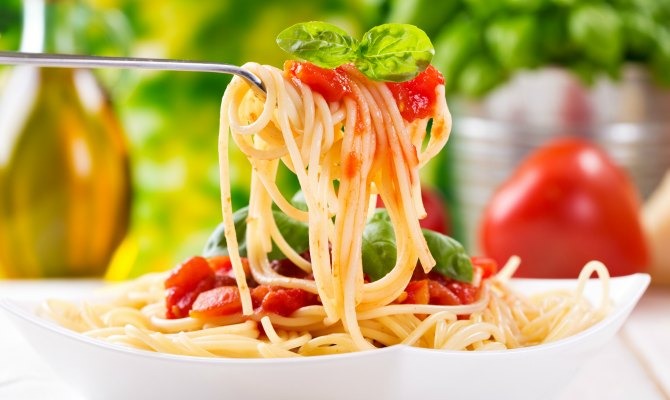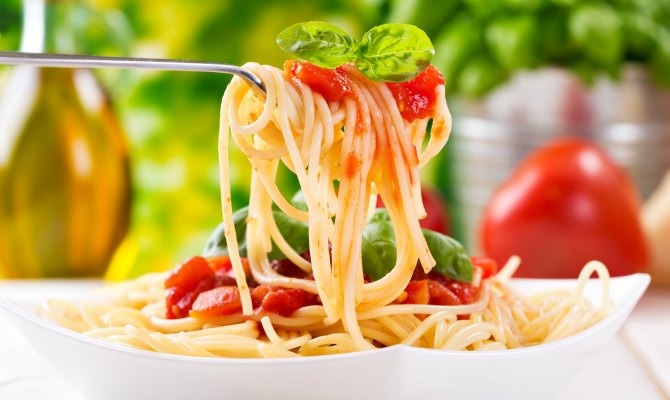7 Things You Didn't Know About Pasta
14 Things You Didn't Know About Pasta
Americans eat a lot of pasta, but how much do we really know about beloved spaghetti, macaroni, or zitti? Here are 7 fun facts about pasta.
Al Dente Pasta Keeps You Fuller Longer
When pasta is cooked al dente (which literally means "to the tooth" or "to the bite) it takes longer to digest. Not only will that keep you fuller longer, it also helps the paste keep your blood sugar levels more stable.
All Pastas and Sauces Are Not Interchangeable
Part of the reason that there are so many shapes of pasta is that the weight, texture, size and shape of the pasta all contribute to the way that it holds onto sauce: basically, certain shapes of pasta are better paired with certain sauces than others. Creamy sauces, for example, cling well to long, flat strands, while short, tubular shapes are better paired with thick, chunky sauces.
Pasta Contains Protein
Although we often think of pasta as a carbohydrate, eating pasta is actually a good way to get a little extra protein into your diet. One cup of cooked spaghetti, for example, can have as many as 8 grams of protein, and supplies your body with several of the amino acids that we needs to stay healthy.
Pasta is a Sustainable Food
Plant-based foods (like fruits, vegetables, legumes, and grains) have less environmental impact than animal-based foods, because plant-based foods require less land, energy, and water to produce. That makes dried pasta (made from just flour and water) a better choice for the environment than many other foods.
The Ancient Chinese Ate Pasta
Pasta is an Italian dish, right? Maybe not; a 4,000-year-old bowl of noodles found in China suggests that the Chinese were actually the first to eat pasta.
There Are More Than 600 Pasta Shapes
According to the National Pasta Association, there are more than 600 different shapes of pasta produced around the world. How many shapes do you know?
There’s Meaning Behind the Names of the Pasta Shapes
Pasta (which comes from the Italian word for paste — no surprise there, given that many pastas start with a pasty mix of flour and water) isn't the only name with significance. Farfelle is the Italian word for "butterflies," and spaghetti means "little strings".








